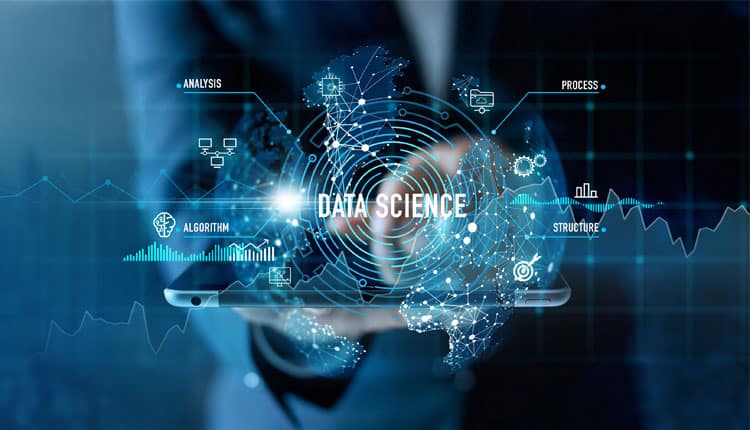Space exploration has always been one of those things which sparked human imagination. From the first moon landing until today’s journeys to Mars, humans have always sought to explore the mystery of the universe, always pressing for advancement in the technological frontiers. Today, some of the most unprecedented advances in the field are developments in data science. The future of space exploration is not merely in the rocket and spacecraft; it lies in the processed, analyzed, and interpreted data that is processed and analyzed so effectively.
Data science plays an increasingly essential role in the success of space missions and unlocks new possibilities with increasing ability to explore even the most remote corners of the universe.
Data Science: The Core of Modern Space Exploration
In simple terms, data science is gathering and analyzing vast amounts of data to find patterns, insights, and predictions. Space exploration creates an astronomical amount of data, if one will-consider the satellite images alone, then space telescopes and probes added. Processed data is vital to the success of these missions, and data scientist course in pune are at the helm of making sense of it all.
Data coming from space traditionally was voluminous and could not be analyzed through traditional methods. However, with the advancement of machine learning, artificial intelligence, and cloud computing, we can now make sense of petabytes of information gathered from the farthest planet, galaxy, and stars in our universe. These improvements are therefore advancing the way we navigate space, predict celestial events, and locate potential extraterrestrial life.
The Role of Data Scientists in Space Missions: Expanding
Skills acquired by professionals through data science courses-those offered by professional training organizations or academic institutions like Pune-endow them with technical knowledge that can be applied to space missions. NASA’s Mars Rover missions, for instance, rely heavily on the input of data scientists in analyzing imagery and environment data to decide where its rovers should go next.
Predictive modeling is one of the important tools applied in data science, helping scientists predict the most likely outcomes for space missions. By using machine learning algorithms, the historical mission data can optimize pathways for spacecraft to the most efficient routes or help detect anomalies that would signal possible system failure. This field lends precision with real-time adaptability needed for success, otherwise lacking in missions to explore planets, moons, and asteroids.

Artificial Intelligence and Machine Learning: Reinventing the DNA of Space Exploration
How Do AI and Machine Learning Change the Way We Process Space Data?
The new wave of AI and machine learning is changing how we approach the processing of space data. These technologies enable scientists to look for patterns and anomalies in vast databases, perhaps never to have otherwise discovered. AI systems can automatically analyze satellite imagery, flag changes in landscapes or atmospheric conditions in real-time.
Space agencies are also being supported by machine learning algorithms in automating the operations of spacecraft. NASA, for instance, uses AI to make spacecraft more independent through autonomy in decision making; probes can do decisions based on real-time data without needing the human input of people from Earth-that is especially beneficial to missions where communication delays stretch to several hours. AI increases chances of successful missions and further eliminates human error because spacecraft can think and act independently.
The connection between big data and space exploration almost becomes symbiotic. On one hand, it provides fertile ground to develop new techniques in data science. On the other hand, it enhances our ability to explore space and could, at least in theory, have been felt to be impossible before. For example, big data analytics plays a vital role in the forecasting of space weather, which can, for instance, save satellites and spacecraft from lethal solar radiations. Such real-time analysis of space weather data may prevent mission failures arising from the sudden arrival of solar storms.
In fact, data science is playing a critical role in ensuring that the impending reality of space tourism- commercial space flights- are not only safe but also successful. Companies like SpaceX are already applying big data to optimize flight paths and become more fuel efficient, bringing down the cost of space travel. Data science also applies to developing new propulsion technologies by simulating spaceships under various conditions without launching them.
This means that, with more space-related activities in the future, the need for data scientists is also going to amplify. Hence, the astronauts of the future will have ample need for individuals with experience in data analysis and machine learning, AI, or any such related field. Therefore, a course in data science in Pune or any such similar course can be an opener to this burgeoning field. It is in this context that cities like Pune are emerging as knowledge destinations for tech education. Many institutes here offer specialized courses in the field to prepare students for a career in this exciting and fast-evolving domain.
In the future, more collaboration between data scientists, engineers, and astronomers will play a significant role. Space exploration will depend on multi-disciplinary knowledge cooperation, with experts from a number of disciplines working together to solve the complex issues that they meet. All this will result in an innovation of the way mankind scans the universe, with blends involving data science with the most traditional fields such as astrophysics and aerospace engineering.
Conclusion: The Sky Is No Longer the Limit
The application of data science in space exploration is still in its early stages, but the potential scope is very broad. Data science is gradually enriching efficiency on the recognition of completely new planets in the approach toward exploring the cosmos. This will surely offer unprecedented steps for increased professionals doing data scientist courses and for all the learning of AI, machine learning, and big data analytics.
For anyone eager to be part of this exciting frontier, a data scientist course or anywhere in any tech hub can lead to space-oriented careers quite literally and figuratively. The sky is no longer the limit—data science is pushing us to explore far beyond the stars.
Business Name: ExcelR – Data Science, Data Analyst Course Training
Address: 1st Floor, East Court Phoenix Market City, F-02, Clover Park, Viman Nagar, Pune, Maharashtra 411014
Phone Number: 096997 53213
Email Id: enquiry@excelr.com

